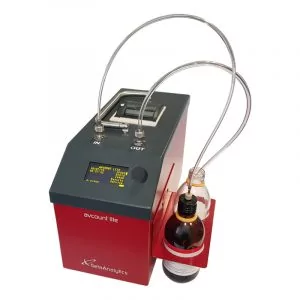Why measure particles in diesel fuel?
- Fuel quality has a direct impact on performance and component longevity
- Cleanliness, or more specifically particle content, is a key factor in fuel quality
- Problems caused by particles are blockage, wear and erosion in fuel systems

Fuel cleanliness
- Cleanliness limits in the World Wide Fuel Charter are presented in terms of particle counting
- Particle counting is a recognised, established cleanliness determination, with very good repeatability and reproducibility, it is non subjective and available real time
Test methods
- There are a number of internationally accepted test methods
- Energy Institute test method IP 565 for aviation turbine fuel (mandated in fuel specification Def Stan 91-091)
- ASTM test method D7619 (referenced in D975 and D7467 specifications for diesel and middle distillates fuels)
- The above test methods were developed by Stanhope-Seta using the AvCount light obscuration particle counter
- A particle counting method is being developed by CEN and the Energy Institute for potential use in EN 590
How does the AvCount Lite SA1800-2 help?
- A compact, portable instrument that can be battery or mains powered allows use within the distribution network or in the laboratory
- Samples can be drawn from bottles or on-line with real-time test progress and results displayed, allowing for immediate corrective action
- Simple to use with an automatic test procedure using only 80 ml fuel (IP 565/ASTM D7619)
- Pre-programmed with three test methods including ASTM D7619, covering middle distillate fuels including diesels, bio-diesels and bio-diesel blends

Visit the SA1800-2 AvCount Lite product page
Download the Particle Counting in Diesel Fuel Market Guide